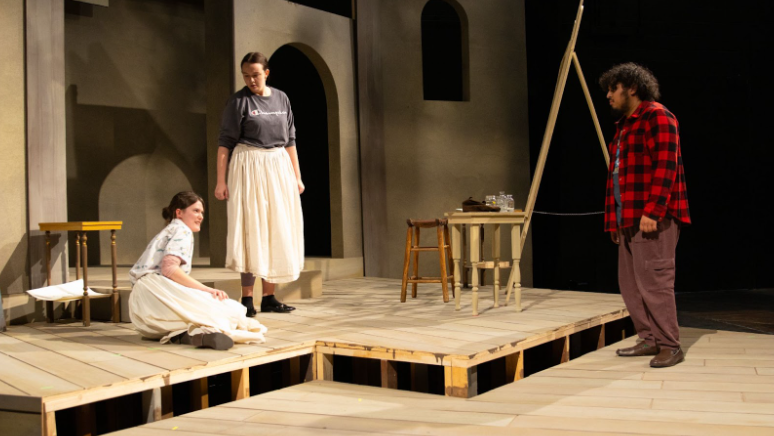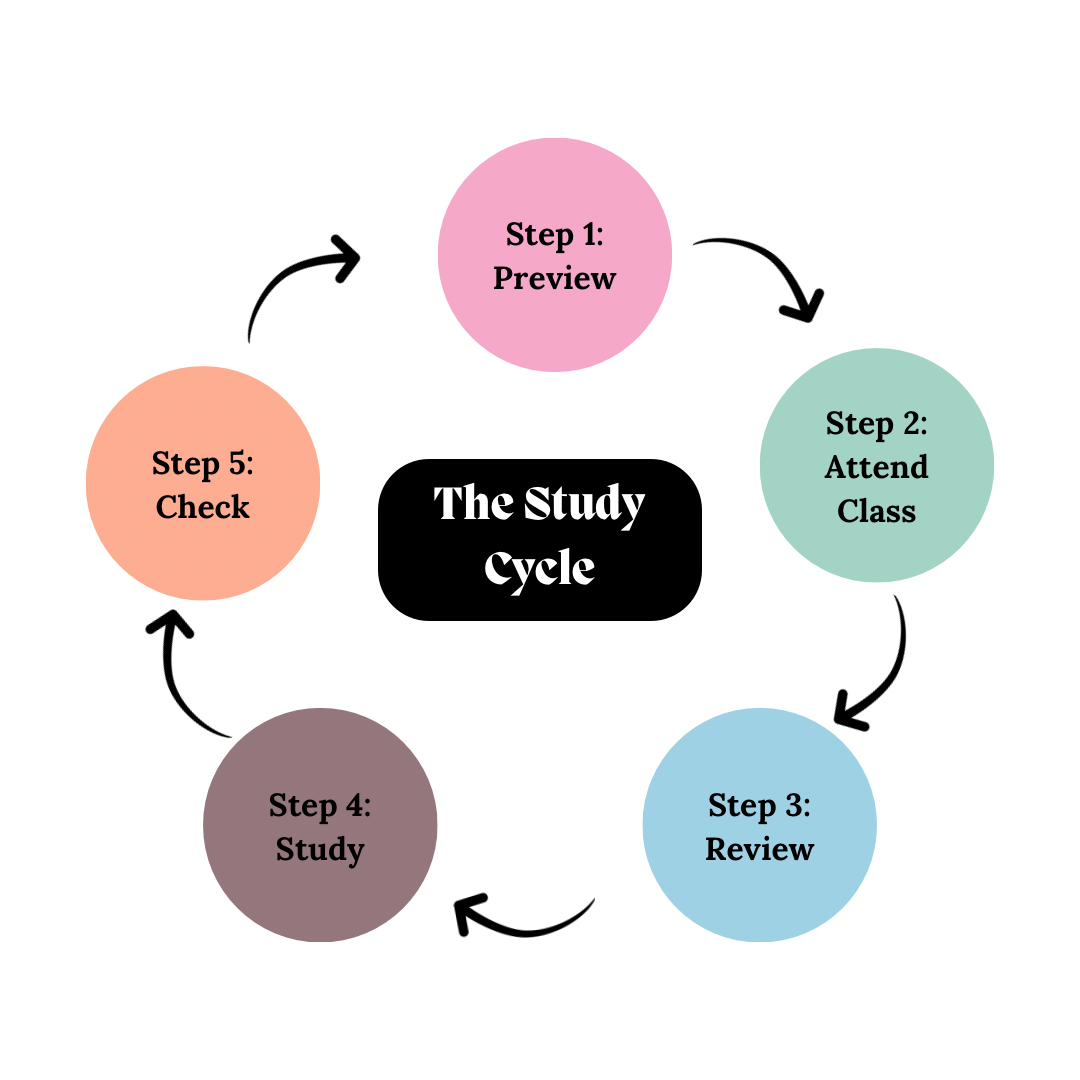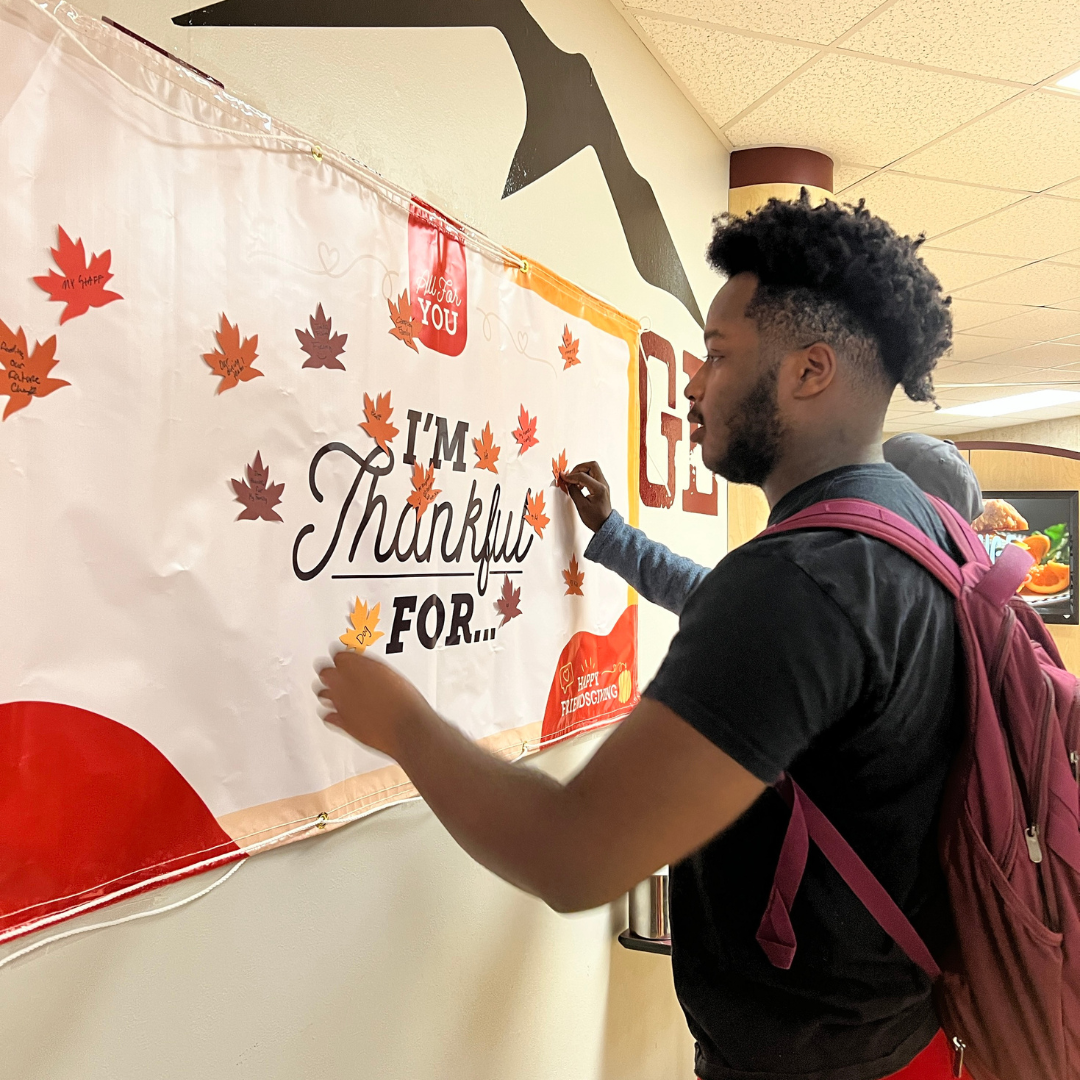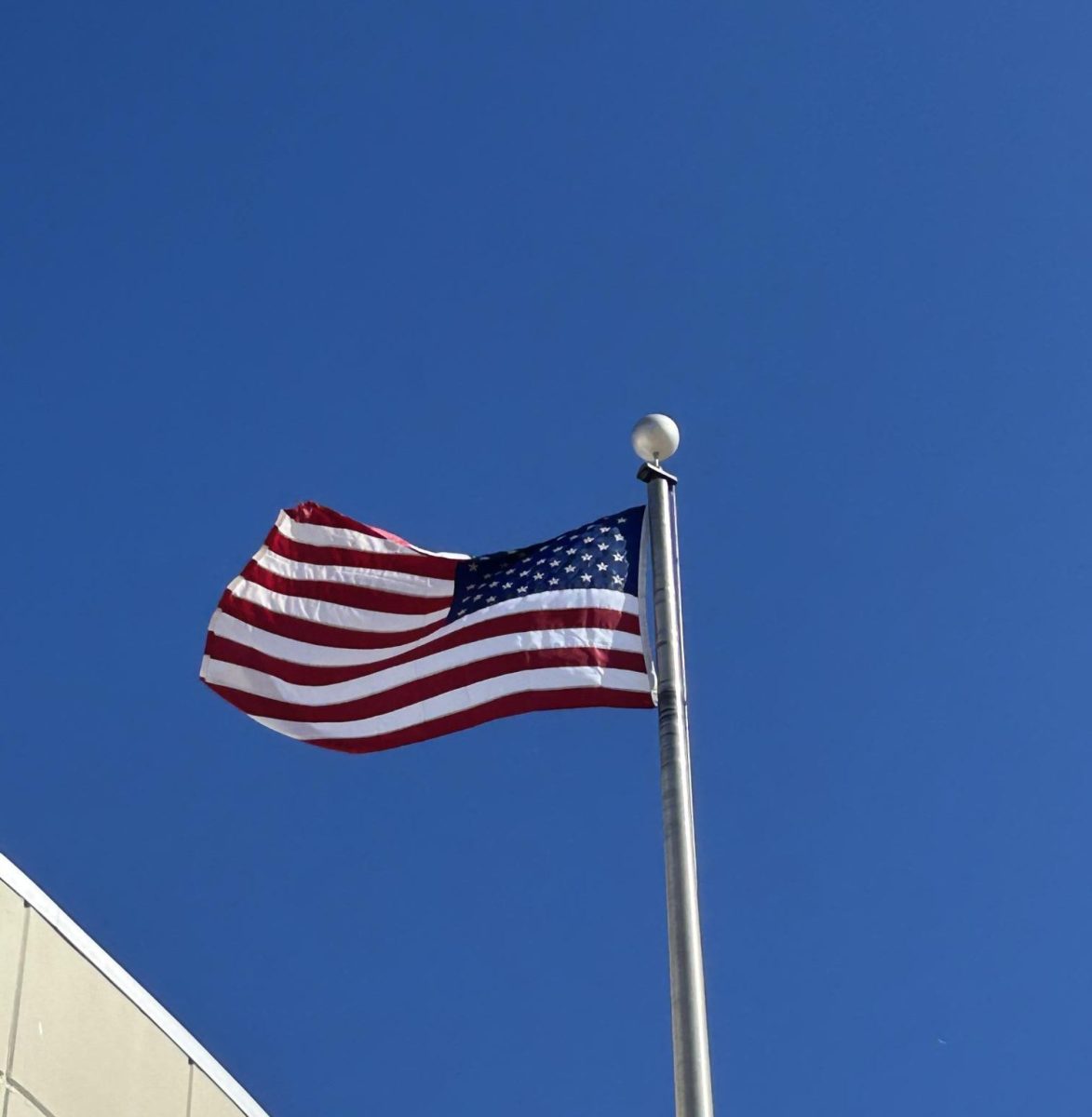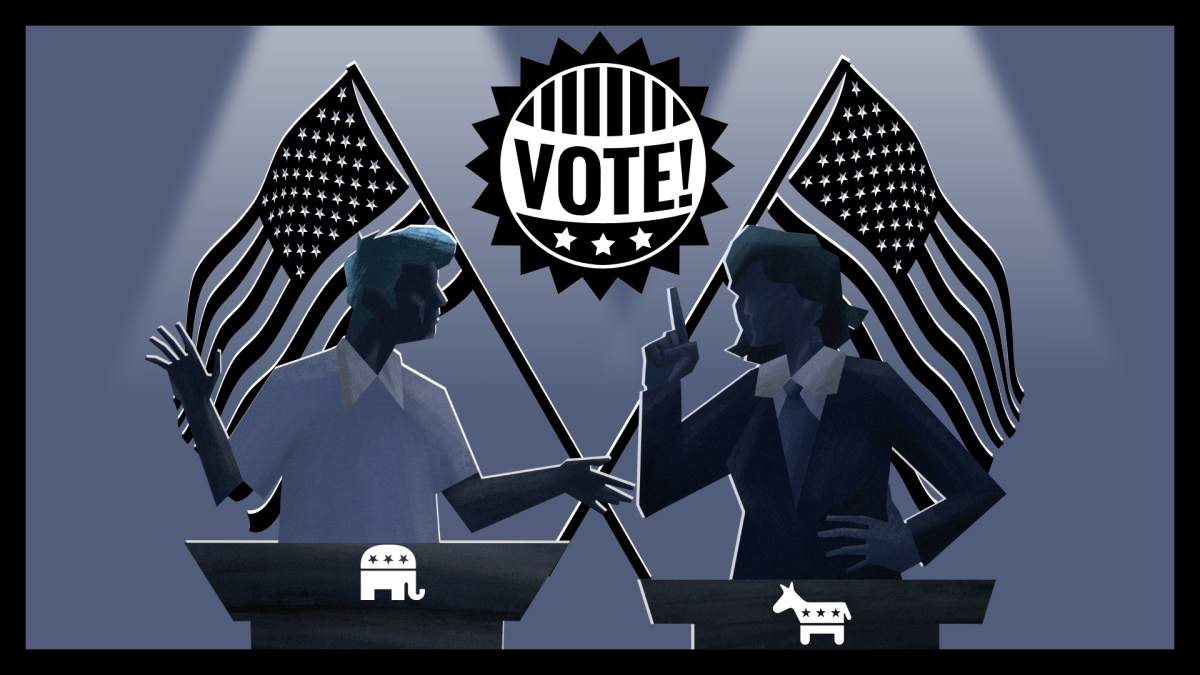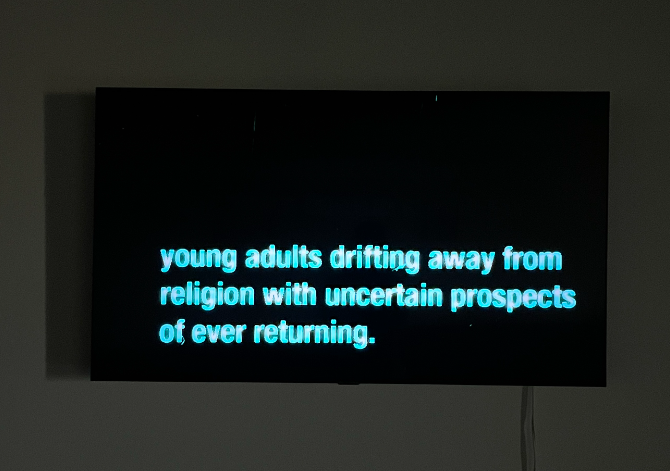
On Nov. 14, Dr. Jeffrey Doty gave a lecture in part of the Remnant Trust Lecture series, titled “Improbable Shakespeare Or, How a Playwright (of all things) Became our Greatest Writer,” at Legacy Hall.
“I think it’s great to have original documents, to see how original people read it,” Doty, Assistant Professor in the English, Philosophy and Modern Languages Department, said.
Mary Jarvis, Assistant Director of Information and Library Resources, was also at the event.
“I think it’s important for [us] to actually see them, hold them, and look at the pages knowing they exist, but actually holding and seeing them is incredible,” Jarvis said.
The lecture kicked off at 6:30 p.m. following a small reception. The lecture was split into three sections. The first was Shakespeare, from “Script to Book: 1594-1623.” The second was ‘Shakespeare in America, 1600-1900” and the last one was “Shakespeare Now.”
“It was so informative,” Jarvis said. “What intrigued me the most was how Shakespeare was performed in the frontier of the U.S.”
In the first section, Dr. Doty described how Shakespeare was first read in 1594. The controversial topic was how Shakespeare’s name didn’t appear on the title page, a fact that has had many people questioning if Shakespeare was actually writing his plays. It wasn’t until 1598 that his name finally appeared in Love’s Labor’s Lost. One of the main reasons Shakespeare’s plays were published so rarely during his time was because when a script was published, one would just buy it instead of attending it over and over, which would result in loss of money. Only in some instances would they sell the scripts, such as when plagues occurred they would shut down the theaters in order to not come in contact with the illness or when a play was dying down the script would then be sold.
“I’ve been thinking about doing this [lecture] since August,” Doty said. “I started writing it a week ago and finished it today. I have read 15 books.”
Doty also talked about another playwright named Ben Johnson, who was actually the first modern author, in the sense that he published everything first. It wasn’t until after Shakespeare’s death that his theater friend collected 18 of Shakespeare’s plays and put them into a folio. The original cost of the folio was £1, (roughly $200 now). The importance of the folio is, without them, we wouldn’t have known of Shakespeare’s plays. The only way we would have known about them is by word of mouth.
“I felt that it was immediately accessible,” Theresa Trela, English professor at WTAMU, said. “I felt as if we were sitting over coffee. I adore what he did on the relaxed atmosphere.”
Part Two consisted of how Shakespeare made its way into America. From 1600 to 1750, there were no Shakespearean plays in America. Then from 1750 to 1775, there were over 500 performances of Shakespeare’s plays done in America. One of the main reasons they rose in popularity was because of the Revolutionary War.
Thomas Jefferson was a fan of Shakespeare and recommended the plays to his friends. John Wilkes Booth associated himself with Julius Caesar after he assassinated President Lincoln. He lamented on how Caesar killed Brutus for the greater good.
The last section was “Shakespeare Now.” In this section, Dr. Doty talked about how Shakespeare started off really popular in the early years but soon started to decline. Then Harvard started to teach Shakespeare. 12 years later, almost every high school required a study of Shakespeare, bringing it back into the almost everyday lives of not only high school students, but the community as well.
Dr. Doty ended it with a Herman Melville quote on Shakespeare, “But it is those deep, faraway things in him, those short, quick probings at the very axis of reality; these are the things that make Shakespeare, Shakespeare.”
The Remnant Trust will be leaving WTAMU at the end of the semester.



